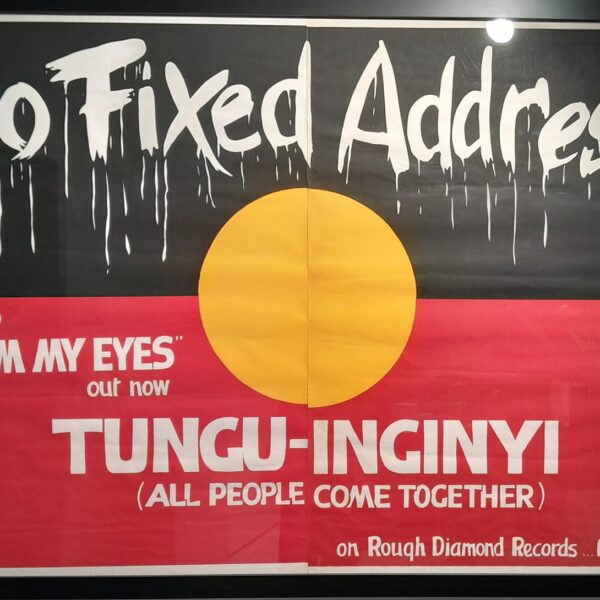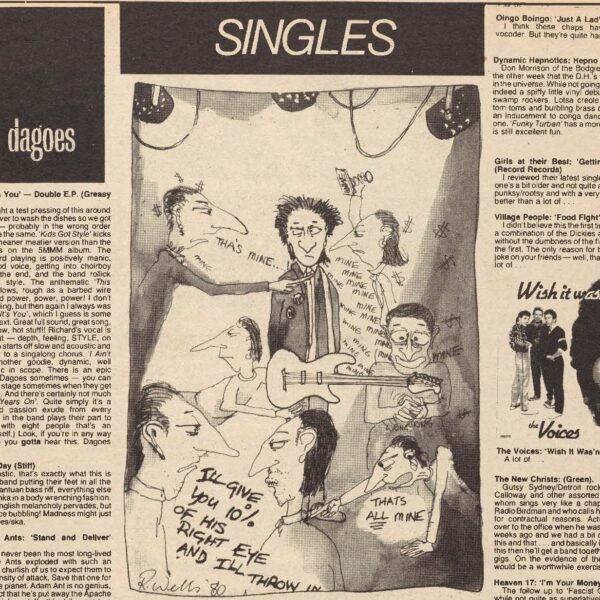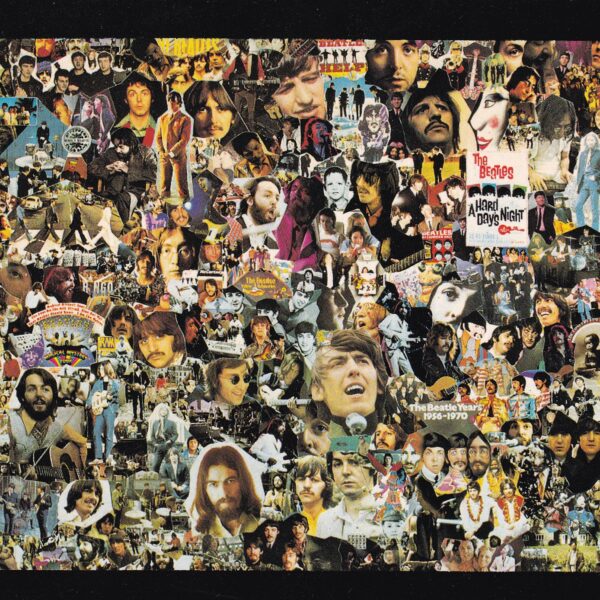Laughing Lennie
Many years ago, I watched a documentary on Foxtel’s Arena channel called ‘Beautiful Losers’.
Made in 1997, it was about Leonard Cohen, Marianne Faithfull and Willie de Ville, in which the three songwriters and performers were interviewed about their lives and careers.
Willie de Ville, who I recalled as a sharply dressed, late 70s, new wave one-hit wonder from New York (the hit being the latino flavoured ‘Spanish Stroll’) was moderately interesting. Marianne Faithfull and Leonard Cohen were both fascinating.
Marianne had aged very well. Filmed in her cottage in the remote Irish countryside, she came across as strong, lucid and open, yet formidable. Her classically beautiful face was still intact. And she said she was grateful Leonard Cohen was still around because Leonard was a poet and she needed someone like Leonard to be analysing and getting to the bottom of things.
My two great Leonard Cohen memories are both located in Adelaide. The first was sometime in the early 70s, probably 1972, when I was a uni student. I remember going to a house in Cassie St, Collinswood, just near the ABC. I’m pretty sure it was number 25. It was late, after midnight, and I was with Phil White, then a raw-boned country lad from the Adelaide Hills, later to become one of Australia’s top wine writers. The house was full of floorboards and I remember Phil putting on a Leonard Cohen record, Songs of Love and Hate I think, anyway the one with the song that opens, ‘It’s four in the morning/The end of December…’ and it was just so deliciously melancholic that you could wrap that famous blue raincoat of melancholy around yourself and hug yourself with it and it was just so delicious.
The second happened about ten years later, when I was editing and publishing the music magazine Roadrunner. I had just finished interviewing New York singer Ellen Foley under a sun umbrella beside the pool out the back of the Park Royal Hotel on South Terrace. There were two pools, side by side, a shallow children’s pool and a deeper main one. It was a sunny, warm Adelaide day, late morning as I recall, and as I got up to walk back to the hotel, I noticed members of the classical rock quartet Sky sunning themselves on the other side of the pool. And then my eye was caught by a figure in black swimming trunks walking on the edge of the main pool. ‘Oh my God,’ I said to myself. ‘IT’S LEONARD COHEN.’ I was so transfixed by the sight, by the man of melancholy, the man of night, the vampire of love, the soundtrack man for the warm bath and the clean razor blade, walking barely clothed in the bright sunshine by the pool that I didn’t look where I was going and I walked fully clothed into the paddling pool.
Sure, it was a bit embarrassing. But even now I can understand why it happened. Leonard Cohen in black swimmers is enough to command anyone’s attention.
In the documentary, Laughing Lennie was living in Los Angeles and his favourite spot was a cramped little window nook in the kitchen, sort of a small fixed bench beneath a window with a small fixed table in front of it. He liked to just sit there and look out the window. He was still writing those songs, the words different, but that rich lode of melancholy, that rich seam still in evidence. He said the songs take longer to come now and that he finds he has to write everything down, all the banalities and trite phrases and then start refining and analysing and working on the words and eventually the truth or the true nature of his feelings emerges. That’s the hard part, but he said he likes recording and likes performing the songs and said it’s a rewarding experience to bring the songs alive and put yourself into the songs so the audience gets to see something more than a simple replay of a song.
As detailed in Sylvie Simmons magnificent biography, “I’m Your Man: The Life of Leonard Cohen’, shortly afterwards Leonard retreated to a Zen Buddhist monastery in the San Gabriel mountains 55 miles east of LA. When he reemerged early in the noughties with a couple of low profile albums (Ten New Songs and Dear Heather), I must confess I wasn’t paying attention. For me, as for many fans I suspect, it would not have been a surprise if the grand old man, then hitting his seventies, had quietly faded away.
* * *
Cohen’s late career renaissance, with an astonishing number of sublime performances strung together like pearls in an ongoing succession of world tours, has been absolutely remarkable.
As Simmons describes in I’m Your Man, its catalyst was the embezzlement of virtually all Cohen’s money by his manager and trusted friend Kelley Lynch. Cohen’s initial reaction was to walk away from the whole thing, but his lawyers said it wasn’t as simple as that. Much of the money had been been in accounts and funds liable for tax bills—and there was no money left to pay those bills.
Simmons’ account of Cohen’s slow coming around to the idea of performing live again is for me the high point of a book filled with many such peaks. The first date on what singer Sharon Robinson called ‘this ever expanding, growing magic carpet’ was in Fredericton, New Brunswick. ‘First we take Fredericton, then we take Berlin’, was the joke at the time. ‘The audience reaction from that first night was ‘This is hugely momentous’ ,’ recalled singer Hattie Webb. And so it has proved.
I was fortunate enough to see the shows at Sydney’s Acer Arena on 8 November 2010 and Sydney Entertainment Centre 16 November 2013 (and thank you again Liz for the tickets!) The first, with our seats six rows from the stage, was one of the best concerts I’ve ever been to. The band was superb, playing the most exquisite form of cocktail jazz, the backing singers—Sharon Robinson and the Webb sisters—providing immaculate vocal support. Cohen was old but fit, wise but funny, charming but profound and had the audience spellbound for over three hours.
The second, while not such a revelation, was imbued with the same reverence and both shows were marked by Cohen’s attitude of total respect for both the band and the audience, lightened by the occasional good-humoured witticism. In the 2013 show, Cohen remarked on the positive energy of Sydney saying, ‘They look like they haven’t been given the bad news.’ Quick as a flash, musical director Roscoe Beck replied ‘That’s what we’re here for.’
The word is that with the World Tour 2008-2013 having come to its end in December 2013, Cohen is back in Los Angeles and working on new songs for the next album. While no release date has yet been confirmed, I look forward to it with anticipation.
He will be 80 in September 2014. He’s still commanding my attention.





